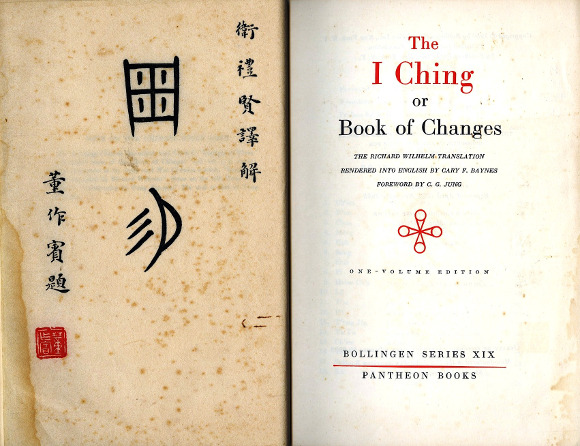, Book You Might Not Imagine Clarice Had. IMS Clarice Lispector, 2013. Disponível em: https://site.claricelispector.ims.com.br/en/2013/04/19/livros-que-voce-talvez-nao-imagine-que-clarice-tinha/. Acesso em: 26 July 2024.

When we think about the books that make up a writer’s library, we first imagine works that have influenced the author, or at least dialogue with his or her literary production. When speculating about how Clarice Lispector’s bookshelf would look, a reader could assume the presence of Virginia Woolf’s novels, stories by Katherine Mansfield… and, in fact, in Clarice’s library, which is in the IMS Collection, the two modernists are present.
Unexpected books included various works with Buddhist themes, such as “Introduction to Zen-Buddhism,” “Zen and the Infinite,” and The Tibetan Book of the Dead. The author’s interest in eastern philosophy is evident when we handle her copy of the I Ching, “the book of changes,” a Chinese classic that, among other things, also serves as an oracle.
Clarice left various papers with drafts to calculate responses provided by the I Ching. Some of the questions are scribbled, such as “What’s my future in general?” Curiously enough, this question is on a page in her planner dated December 10, 1974, the author’s 54th birthday.
It is also hard to imagine Lispector purchasing the nutritional guide Let’s Eat Right to Keep Fit, by Adelle Davis, or the fitness guide Exercise and Keep Fit, by Terry Hunt.

In addition to these curiosities, we have two books with styles much different from Lispector’s: Stories, by Ernest Hemingway, known for his dry style and faithful to the notion that “to write is to cut words” [as the Brazilian poet Carlos Drummond has said] and Breakfast of Champions by Kurt Vonnegut, a hilarious novel, written in a simple style defined by the author himself as writing “in the voice of a child.”
Revealing some of the author’s very idiosyncratic interests, we have Fun with Mathematics, by Jerome S. Meyer, and Ten Perfect Crimes, by Hank Sterling, who presents particularly ingenious true crime cases. This latter book is perhaps not so strange considering that it keeps company with many works of detective fiction in Clarice Lispector’s extremely diverse and unusual library.
* Antônio Xerxenesky is a writer.







